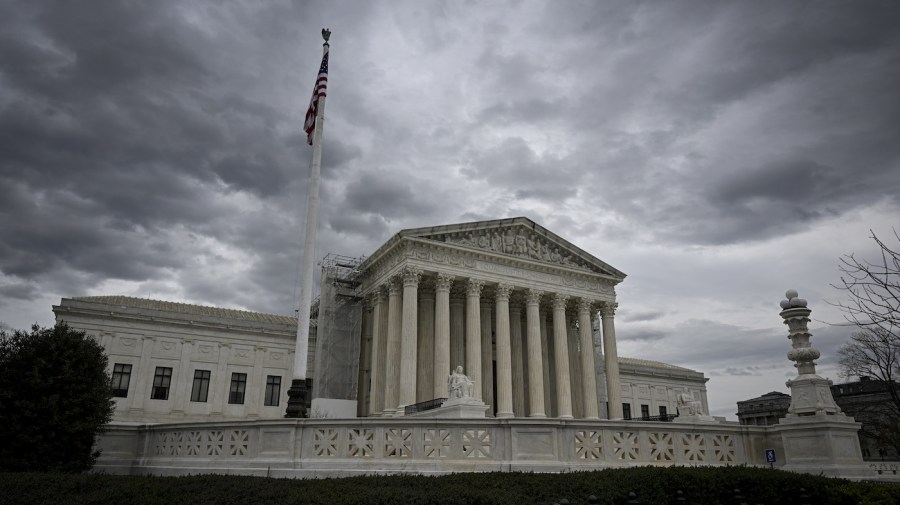The Supreme Court allowed a police officer’s lawsuit against a Black Lives Matter leader to move forward Monday.
In a brief order, the justices turned away activist DeRay Mckesson’s First Amendment appeal, meaning he must face the lawsuit brought by the anonymous officer who was injured during a 2016 protest.
Days after police fatally shot Alton Sterling in Baton Rouge, La., Mckesson organized a protest at which demonstrators blocked a highway outside a local police station.
As police cleared the roadway, the officer, identified as John Doe, was hit with a “rock-like object” and suffered brain trauma, among other injuries, court filings show.
Mckesson did not throw the object, and it is undisputed that he never authorized the violence. But the officer claims that Mckesson’s leadership at the event still makes him liable for the unidentified culprit’s actions.
It’s not the first time the justices have confronted the case. In 2020, the Supreme Court in an unsigned decision called the First Amendment issue “undeniably important,” but the justices sent the case back to first get clarity on whether state law would allow the officer to seek damages in the first place.
Louisiana’s top court eventually responded that it would, and the 5th U.S. Circuit Court of Appeals then issued a ruling rejecting Mckesson’s First Amendment defense and allowing the lawsuit to proceed closer to trial.
Mckesson then brought his First Amendment claim back to the high court. But in a brief, unsigned order, as is typical, the Supreme Court refused to review that 5th Circuit ruling.
“It is unfathomable under this Court’s First Amendment jurisprudence that a State would hold a protest leader liable in damages for a third party’s independent conduct that the leader himself neither incited, directed, authorized, nor ratified,” attorneys at the American Civil Liberties Union, which represents Mckesson, wrote in their petition.
The case largely rested on the relevance of a 1982 Supreme Court decision that found the NAACP could not be sued for supporting a local boycott of white merchants during the Civil Rights Movement that at times turned violent.
Mckesson argues that the precedent forecloses the lawsuit against him.
The anonymous officer, however, distinguishes his lawsuit by arguing that Mckesson — unlike the NAACP — engaged in illegal activity by organizing a protest to block a roadway. The injuries were a foreseeable consequence of that allegedly illegal activity, the officer claims.
“There is nothing un-American or unconstitutional about chilling speech designed specifically and effectively to engage police officers, where time after time the time, the place and manner of the speech has resulted in looting, property destruction, business closures, personal injury, economic loss, bystander and police injury,” the anonymous police officer’s attorney wrote in court papers.
“The time, place and manner of delivering First Amended protected speech matters.”
